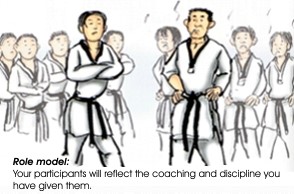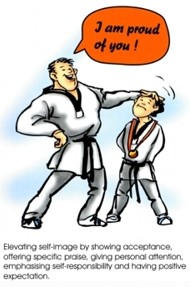The code of ethics outlines the fundamental behaviour expected of a coach.
As a coach, you should be committed to the code of ethics. If you are not, you have no business to be in coaching. Therefore, when you take up a coaching position, you pledge to
act in the interest of the participants by

- respecting the rights of everyone regardless of race, language, religion, sex or physical ability,
- executing your programmes effectively,
- carrying out the duty of care you owe them conscientiously,
- following current and approved practices,
- encouraging them to abide by the principles of fairplay and sportsmanship which include observing the rules of the sport, respecting opponents and officials, accepting referees’ decisions and maintaining dignity under all circumstances,
- elevating their self-image by showing acceptance offering specific praise, giving personal attention, emphasising self-responsibility and having positive expectation, and
- respecting confidential information of participants;
act responsibly by

- striving to be well-prepared and current through continuous personal development,
- recognising your limitations,
- making your training fees, programmes and commitments known,
- preparing sound, safe and fun programmes,
- using your privilege of authority for the benefit of your participants, and
- maintaining respectable relationship with participants to avoid allegations of sexual misconduct or impropriety;
act with integrity by

- maintaining the hightest standard of professional behaviour and personal conduct and appearance,
- representing your coaching qualifications and experience accurately,
- having a cordial relationship with other coaches through co-operation and open communication,
- observing the principles of fairplay and sportsmanship,
- begin honest about what you believe your participants can achieve, and
- referring participants to appropriate coaches if they will not benefit from your programme or ‘experise’.
